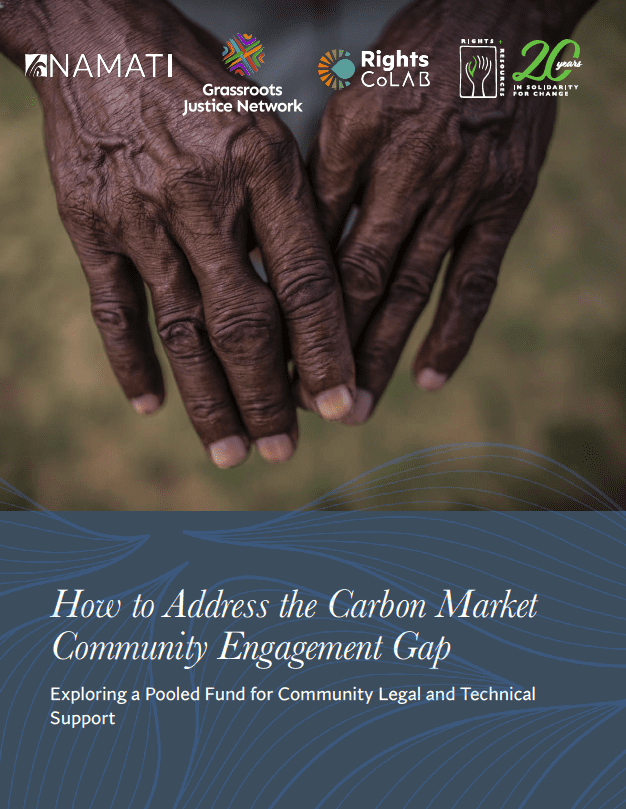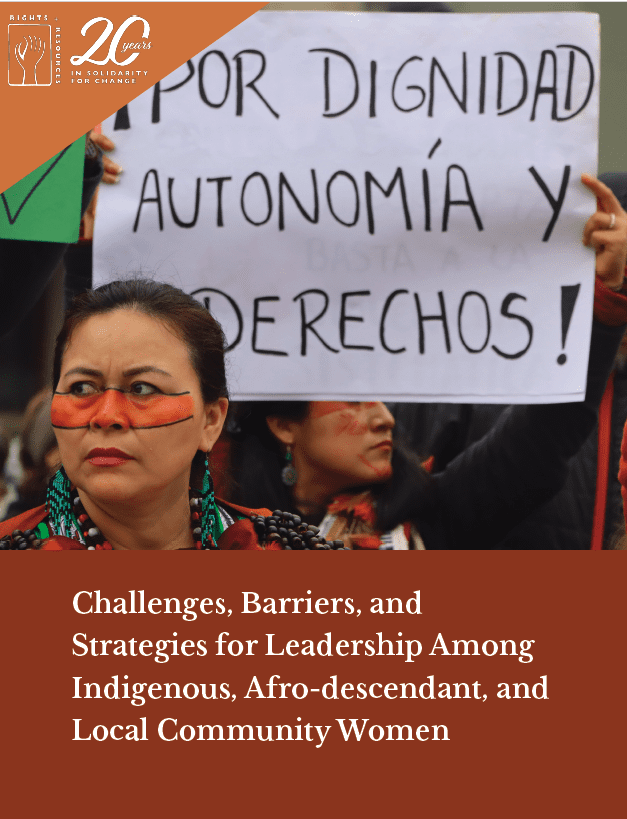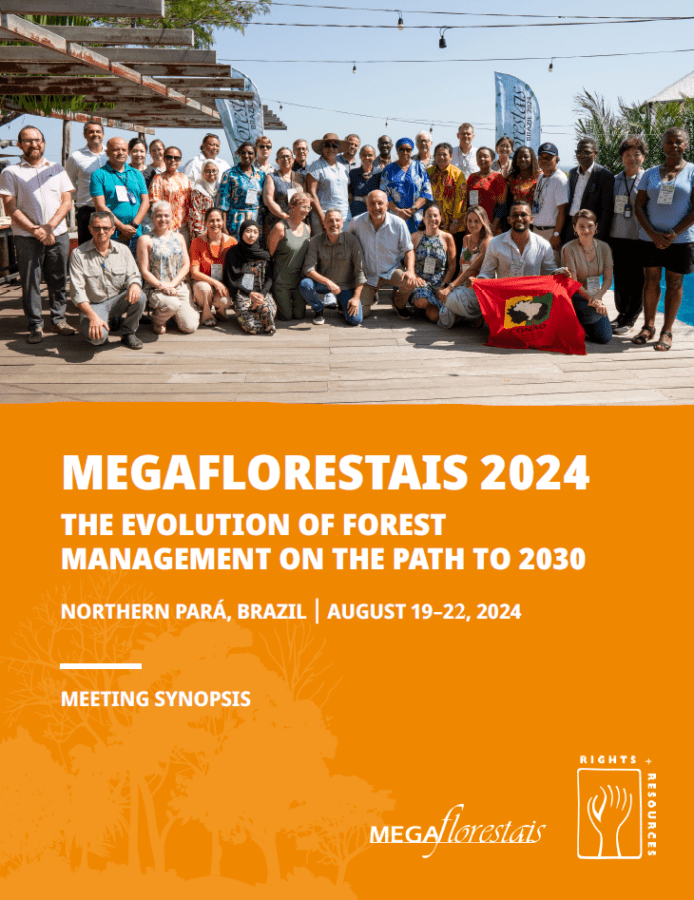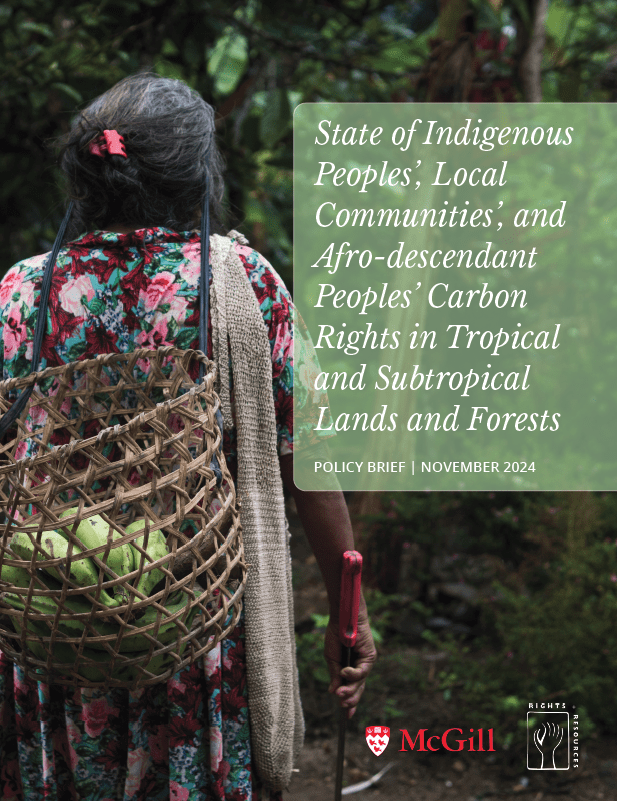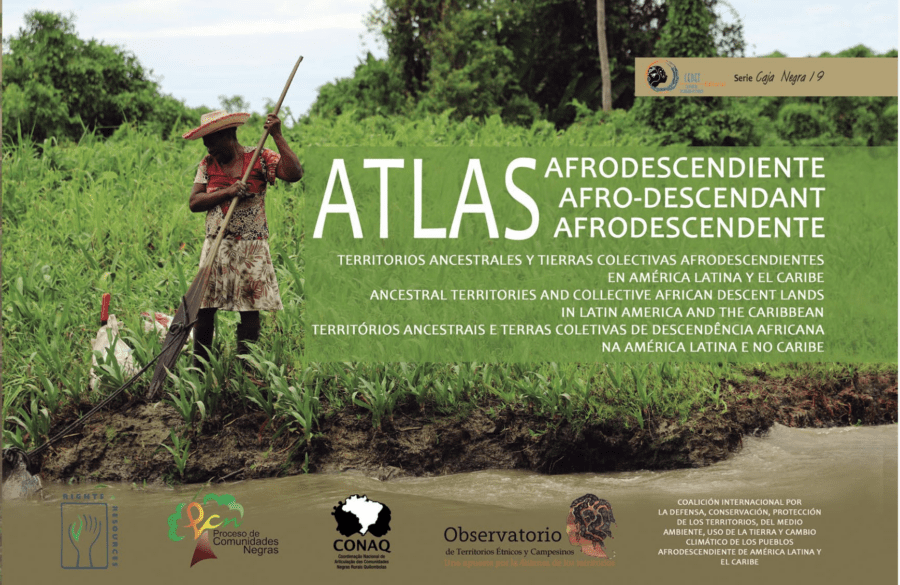In September 2024, during UN Climate Week in New York, the Rights and Resources Initiative, Namati, the Grassroots Justice Networks, and Rights CoLab convened an expert workshop on how to provide legal and technical support to address the challenges that affected communities face in the context of nature-based solutions, including voluntary carbon and biodiversity credit projects. This document provides a brief overview of the workshop discussion and outlines the next steps.
This analysis aims to highlight the contexts and challenges related to the promotion of leadership skills of Indigenous, Afro-descendant and local communities women based on the life experiences of three women in Latin America who have achieved leadership roles in their families, organizations, communities and at the national and international level.
From August 19–22, 2024, public forest agency leaders within the MegaFlorestais network from some of the world's most forested countries met in the state of Pará in northcentral Brazil. They gathered to learn about ongoing forest management programs, progress and challenges of elevating the role of community-led conservation, preventing forest loss, and promoting restoration and reforestation around the world.
This policy brief summarizes findings from a study undertaken by the Rights and Resources Initiative (RRI) and McGill University to systematically analyze the carbon rights held by Indigenous Peoples, local communities, and Afro-descendant Peoples in 33 countries in Africa, Asia, and Latin America.
In response to the dearth of data on funding for women and the need to support international advocacy promoting direct funding to Indigenous, Afro-descendant, and local community women’s groups and organizations, the Rights and Resources Initiative initiated a bottom-up research effort to build a baseline for measuring funding levels reaching community women on the ground and assess the extent to which existing grants and funding mechanisms are considered fit-for-purpose.
This Atlas maps the territorial presence of Afro-descendant Peoples in 15 countries in Latin America and the Caribbean, the state of recognition of their territorial rights, their overlap with areas that are important for regulating and mitigating climate change, and their contributions to conservation efforts.

